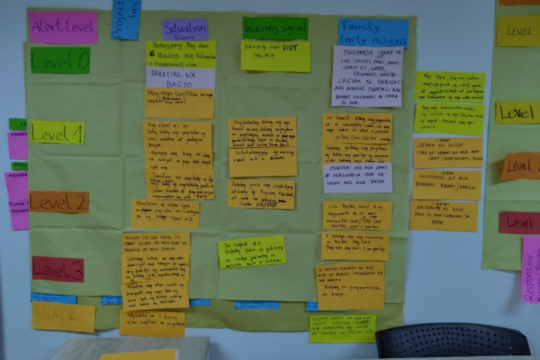Updated as of 15-02-2023
The massive impact of earthquakes has devastated the southern part of Turkey and the northwestern part of Syria. The 7.8 magnitude disaster has led to more than 40,000 casualties and is expected to rapidly increase as rescue operations move past the 72-hour point, deemed by experts as the most viable window to save lives. This is one of the most powerful earthquakes this century with Kahramanmaras and Gaziantep in Turkey, and Aleppo in Syria being the worst-hit cities The far-reaching effects of these devastating earthquakes were felt as far as Cyprus, Greece, Israel, and Lebanon.
Freezing temperatures combined with dozens of aftershocks and more earthquakes have even further heightened the challenges of the survivors. Search and Rescue (SAR) workers from all over the world are pouring into the country to help the victims. As nations are swiftly providing support for rescue efforts, Bangladesh, India, and Pakistan have deployed their national response force units to assist with the rescue mission.
Beacon of hope
A team of 52 specialized search and rescue experts from the Punjab Emergency Services Department (PESD) Rescue 1122 we deployed from Pakistan on 7 February 2023. The team was equipped with specially-trained sniffer dogs and search and rescue equipment, and is currently working with Turkish authorities to extricate victims trapped under the rubble. The dispatched officers are experienced rescuers are trained in Collapsed Structure Search and Rescue (CSSR) and Medical First Responders (MFR). The deployed team comprises rescue personnel, medical professionals, command support staff, coordination specialists, logisticians, and communication experts who are skilled in extracting individuals from the aftermath of collapsed structures. Considering rapid response is the most effective in emergency response, PESD officers are deployed in Adiyaman where some of the most destructive tremors have occurred.
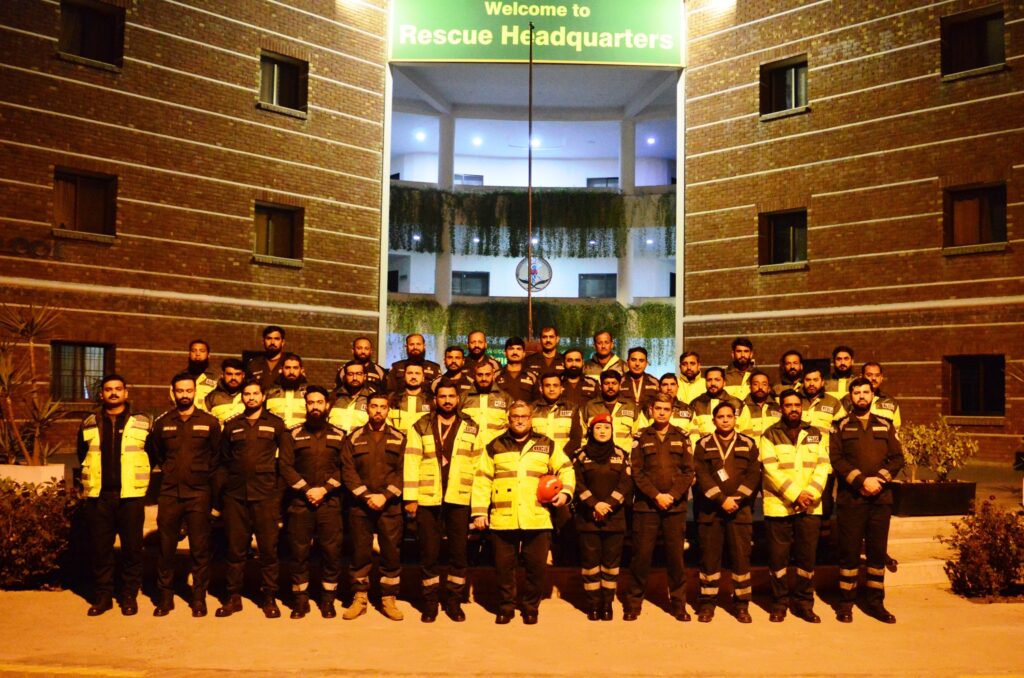
Pakistan National Disaster Management Authority (NDMA) is collaborating closely with Türkiye’s Disaster and Emergency Management Presidency (AFAD) on Pakistani search and rescue operations. AFAD is responsible for deploying search, rescue, and relief personnel to earthquake-affected areas, based on a comprehensive assessment of the needs. To date, the Rescue 1122 team has successfully rescued five individuals from under the debris of residential buildings in Adiyaman.
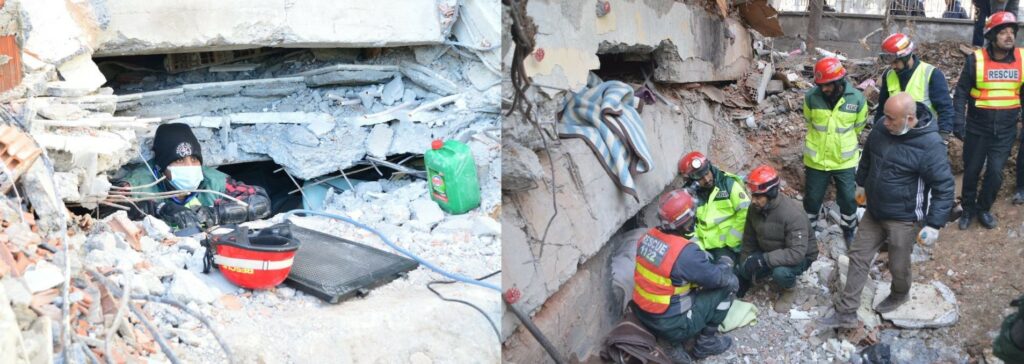
Alongside Pakistan, India was among the first countries to offer assistance to the earthquake battered with relief and rescue operations. India deployed the National Disaster Response Force (NDRF) with five teams on 7 February 2023. Three of these teams are stationed in southern Turkey’s Hatay province, while the remaining two teams are stationed in Gaziantep, poised and ready to assist. The deployed rescue squad consists of SAR experts from the 8th (Ghaziabad) and 2nd battalions (Kolkata) of NDRF who have been trained in the MFR and CSSR courses.
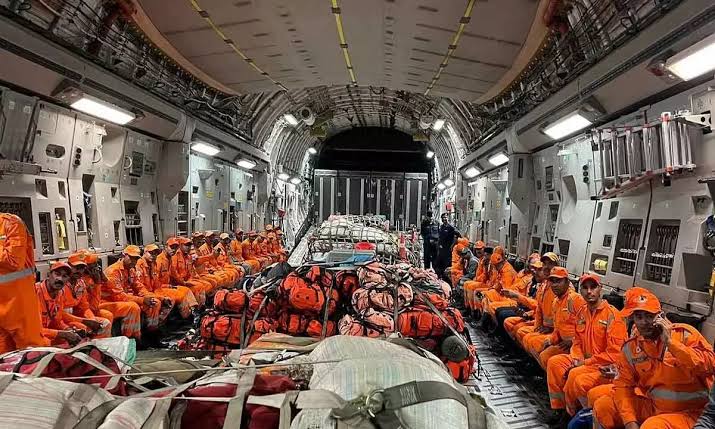
Deepak Talwar, Deputy Commandant, NDRF lead the first team from India to Turkey. “This team consists of 47 NDRF personnel and three senior officers to perform recovery and response work as per the United Nations guidelines. The team is going as per the composition prescribed by NDRF”, he said. The team has evacuated 2 live victims and 63 dead bodies so far.
The rescue teams are striving to evacuate survivors trapped in the debris and offer immediate medical assistance to the hurt individuals. They are using specialized equipment like concrete and stone cutters to clear pathways through fallen concrete and other structures. They also have advanced radar technology that can detect weak signals such as a heartbeat or the sound of a person. The team on the ground promptly established communication networks with the use of antenna and satellite phones.
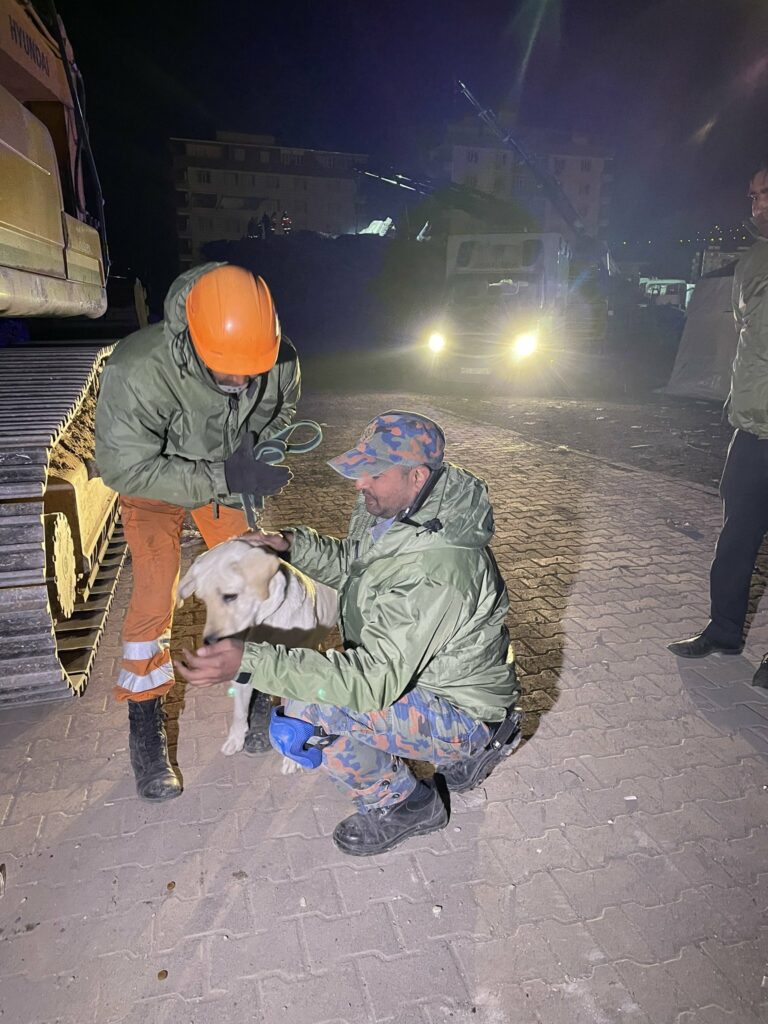
Bangladesh has also deployed a rescue team of 46 members consisting of 34 members from the army and 12 from the Fire Service And Civil Defence (FSCD), who reached the Adana Military Air Base on, 9 February, Thursday and started their rescue operations on Adiyaman city. All the 12 mobilized FSCD officers are CSSR graduates.
Mr. Dino Moni Sharma, Deputy Director, FSCD who is leading the team on the mission added, “Since our deployment on 9th February, we have recovered a total of 15 deceased individuals and saved one person who was found alive under the debris.”
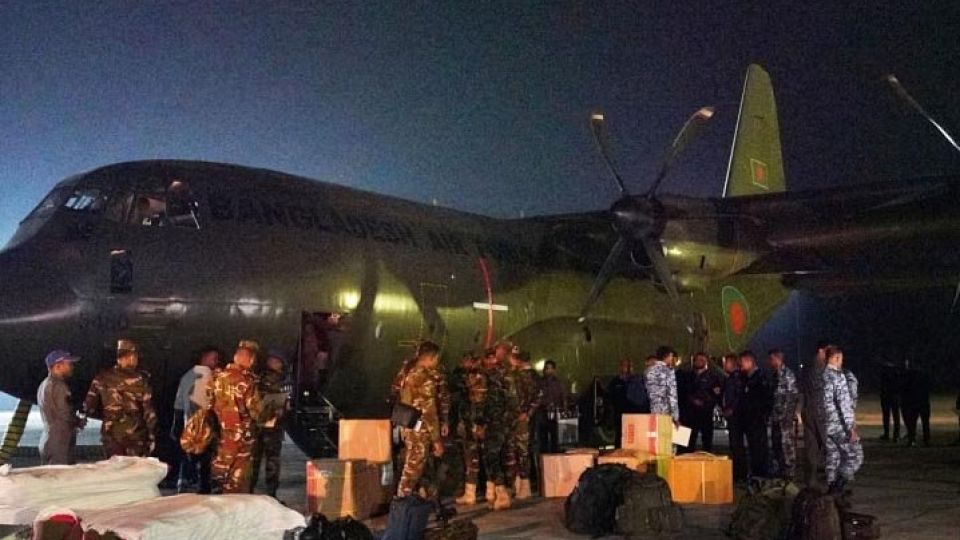
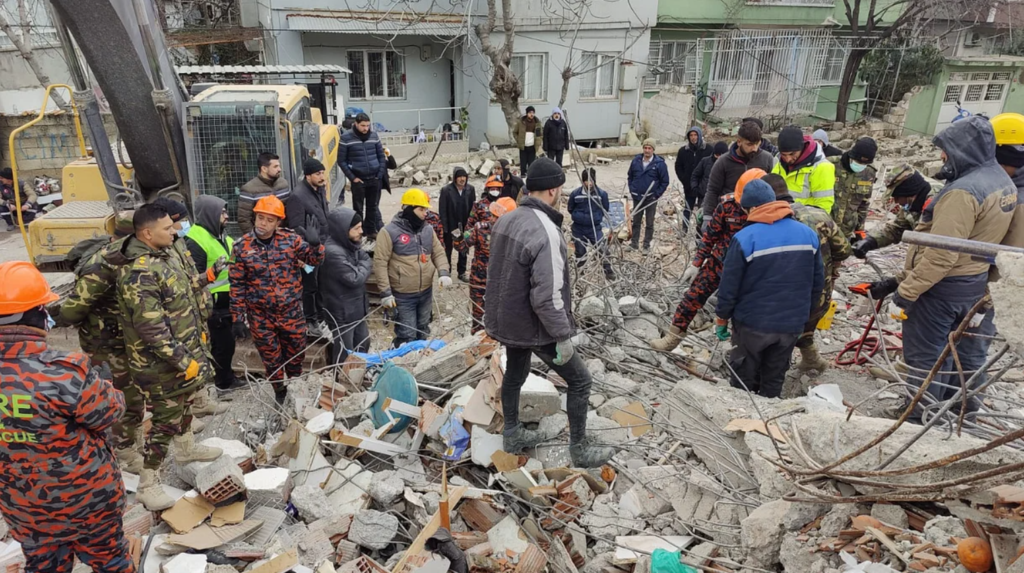
In the race against time, over 120,344 search and rescue personnel are currently operating in the disaster zone to save the maximum number of lives. Relentless efforts have kept hope alive even after 8 days of the collapse, and they have successfully evacuated 30,360 people from the earthquake-affected areas. The destruction caused by the disaster serves as proof that catastrophes have no regard for borders and underscores the importance of regional collaboration in reducing disaster risk. With constantly evolving natural hazards, preparedness becomes more important than ever. The aforementioned response forces are working to enhance resilience through effective preparedness measures.
For nearly two decades, the national response forces in Pakistan, India, and Bangladesh have been part of the Program for Enhancement of Emergency Response (PEER), a regional capacity building program on emergency response supported by USAID Bureau for Humanitarian Assistance and utilized PEER training as its foundational courses. The response forces have collaborated closely with the Asian Disaster Preparedness Center (ADPC) to tailor the curricula to their respective countries contexts and incorporate the courses into their routine training programs. The national forces have integrated CSSR and MFR courses into the training curricula to establish the fundamental principles for conducting search and rescue operations and learning the basics of providing life support. Response skills learned in PEER Courses has been instrumental for securing INSARAG accreditation by Rescue 1122 Pakistan, the first team in South Asia to get such certification.
Collaborating with PEER has also facilitated South Asian countries to develop a learning community that shares knowledge and best practices on DRM. With seven countries involved in the PEER program, it has played a crucial role in promoting regional cooperation among the countries in the region. This community of practice has even facilitated continuous communication between rescue teams in Sri Lanka and the deployed team from Pakistan to mobilize their troops for rescue assistance.
The increasing scale of vulnerability and exposure to hazards emphasize the significance of coordinated response actions. Mobilizing global and regional coalitions should be a priority for disaster resilience.
